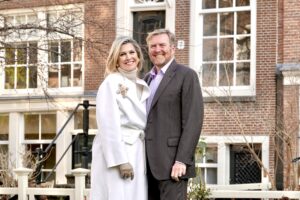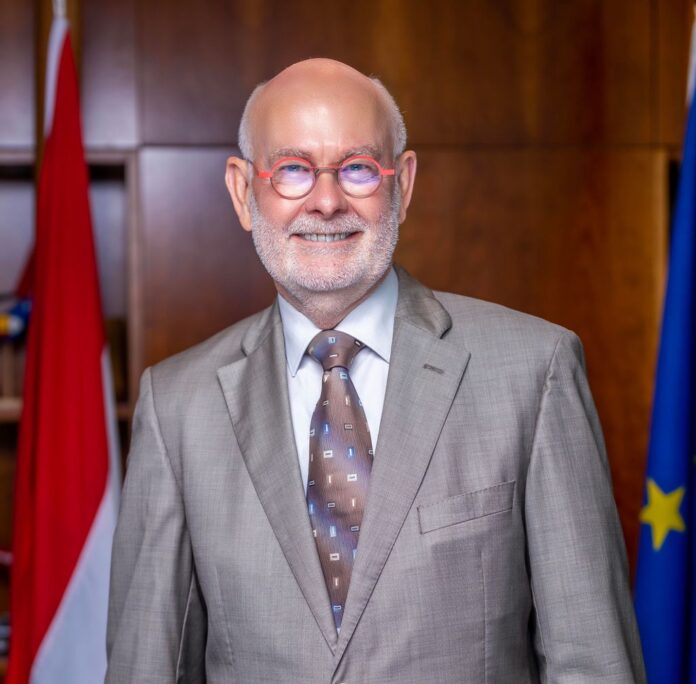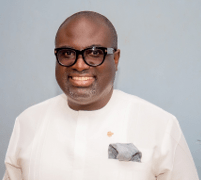April 27 is a historic day in the Netherlands; a momentous occasion when the people celebrate the birthday of their beloved King Willem-Alexander. It is a historic moment etched in tradition and unity, and packed with activities that embody the rich Dutch culture.
The King of Netherlands holds a symbolic role as head of state and the monarch of the Royal House; hence the annual celebration of his birthday has become a symbol of national unity.
“The Royal House stands for the unity of the Netherlands as a nation. So for us, the celebration of the birthday of our king is also a celebration of the unity of our country and the independence of our country since 1648,” Netherlands’ ambassador to Ghana, Jeroen Verheul, shared the significance of the day in an exclusive interview.
The King’s Day, also known as “Koningsdag” reflects a vibrant expression of Dutch national pride and unity; serving as the most significant public celebration across the country. It is more than a birthday celebration: a profound tribute to Dutch heritage, freedom, and communal spirit.
This year’s celebration will be marked on Saturday, April 26, 2025—when the king will visit Doetinchem, one of the cities in the Netherlands, and interact with the people to celebrate his birthday, a blissful occasion laced with sports, games and musical performances.

“In a number of places, in a number of cities, there are free markets, so people are allowed to put things up for sale without any permits or any difficulties. They put a blanket in front of their house and sell their goods or products, amid fanfare, games and musical activities,” Ambassador Verheul narrated how the day is marked across Dutch cities and streets.
In Ghana, he said the celebrations will kick-start with an official reception that will host government officials, the diplomatic and business community at his residence on Thursday.
This will be followed by a gathering of the Dutch community, entrepreneurs and Ghanaian business partners. This celebration seeks to entrench the good relations between the embassy, the Dutch community and their local business counterparts.
Ghana and the Netherlands share a rich and enduring bilateral relationship that spans over more than three centuries, rooted in trade, diplomacy, and cultural exchange.
In Ghana, the King’s Day celebration is also an opportunity for cementing the enviable Ghana-Netherlands economic relations where investors and the business community are convened to explore partnerships and investment opportunities in both nations.
Trade has been a cornerstone of Ghana-Netherlands relations. Historically, Ghana exported commodities like gold, ivory, and cocoa, while importing Dutch textiles and firearms. In recent years, the Netherlands has become one of Ghana’s top trading partners, with bilateral trade reaching €2.2 billion in 2020. Ghana’s exports include cocoa, fruits, and vegetables, while Dutch exports to Ghana comprise machinery, chemicals, and electronics.
There are currently over 150 Dutch companies operating in Ghana, investing more than €2 billion across sectors such as agriculture, manufacturing, and renewable energy, according to the Netherlands-African Business Council (NABC).
According to ambassador Verheul, the embassy will continue to facilitate investments to key areas of interest for Dutch investors looking to explore business opportunities in key areas of the Ghanaian economy, especially in the horticulture, cocoa and security sub-sectors.
Although direct development aid to Ghana has ceased, he reaffirmed the commitment of the Netherlands government to support the country’s growth aspirations, through targeted investment in the provision of small grants to advance innovative solutions in key sectors of the local economy.
He said: “The Netherlands phased out development cooperation for Ghana almost a decade ago. But we still have some specific budgets to support trade and investment, especially in horticulture, cocoa and security initiatives.”
“Going forward, big grants and economic support will be channeled through multilateral institutions like the World Bank, United Nations, International Monetary Fund (IMF) and the European Union (EU)—but not on bilateral basis,” he added.
In all, we can say that the annual celebration of the King’s Day by the Netherlands Embassy in Ghana does not only sell the rich Dutch culture and heritage locally, but also provides an opportunity for the Dutch government to affirm its position as a reliable partner to Ghana’s development and growth aspirations.










